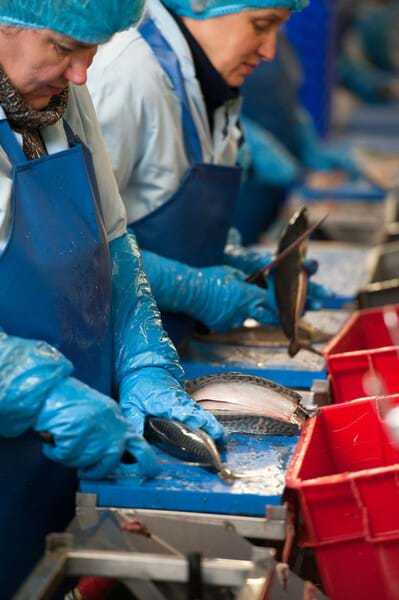The importance of Hazard Analysis Critical Control Points
Hazard Analysis Critical Control Points (HACCP) is a food safety management system developed in the 1960s which seeks to identify and control all food safety risks before they have an opportunity to cause a problem.
HACCP actually IS rocket science as it was developed for the National Aeronautics and Space Administration (NASA) by the Pillsbury Dough Corporation, who manufactured the foods used by astronauts at that time.
Since then this systematic approach to food safety has become the primary food safety control method adopted throughout the UK, EU and much of the rest of the world.
So why is HACCP (pronounced hassup) of importance in the UK seafood industry?
Since 2006 all UK based food businesses have been required to have effective food safety management procedures “based on the principles of hazard analysis critical control points”, otherwise known as HACCP.
Not only is it a legal requirement, but it also makes good business sense.
HACCP encourages food businesses to take a critical look at their operations and to focus food safety efforts on those parts of the process that present the real risk to the safety and integrity of their products. A well thought out and realistic HACCP Plan is a company’s blueprint for how to manage the hazards that are inherent in almost all food handling and processing operations.

For the last 20 years the onshore training team at Seafish has been offering an expanding range of HACCP related training programmes and guidance to UK seafood businesses. Some of these programmes are featured in our September 2023 Seafood Training eAlert.
Our first HACCP programme to be developed was our Introduction to HACCP in the Seafood Industry, while our latest programme to benefit from a HACCP-based approach is our Food Allergens Management training course.
These two programmes have something in common other than HACCP. They are both programmes that are jointly awarded by Seafish and the Royal Environmental Health Institute of Scotland (REHIS).
Seafish has a long history of working closely with REHIS to develop and offer “proper grown up” qualifications to the seafood industry on topics that are often business critical, and occasionally simply not available, from any other training provider.
To develop and offer a REHIS joint award, we start with a syllabus and quickly move on to develop the programme content, then we agree the criteria for approving trainers, develop the exam system to support the programme, trainee study materials, post course support and all the other components needed to ensure trainees are able to learn and apply what they have learned effectively.
Of the 10 Seafish/REHIS joint awards, more than half of them incorporate the principles of HACCP somewhere in their makeup, reflecting the impact that the race for the moon has had on the modern food industry.
To find out more about HACCP and how our training programmes can support your food business, view our onshore training programmes.